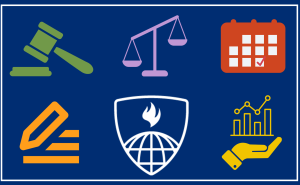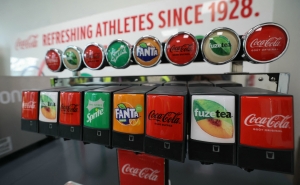Policies That Reduce Gun Violence: Firearm Purchaser Licensing

States with purchaser licensing laws see fewer firearm homicides and suicides.
Since the passage of the Brady Handgun Violence Prevention Act of 1993, gun purchasers across the U.S. have been required to pass a background check before they can buy a gun from a federally licensed dealer. Twenty-one states and Washington, DC, have additional background check requirements for private sales.
While background checks are a critical part of effective gun violence prevention policy, says firearm policy expert Cassandra Crifasi, they are not enough on their own. In this Q&A, Crifasi explains the limits of federal background checks and how firearm purchaser licensing—currently required in just nine states—can more effectively reduce gun violence.
This Q&A is adapted, with updates, from Crifasi’s presentation at Policies that Work to Reduce Gun Violence, a September 2019 forum highlighting science and policy solutions to the nation’s epidemic of gun violence.
How do federal background checks work, and where are the weaknesses in that system?
People who want to buy a gun from a federally licensed seller submit themselves for a background check through the National Instant Criminal Background Check System. NICS looks for criminal records, arrest warrants and civil protection orders, and records of mental health or other prohibitions.
One challenge is that state and local law enforcement agencies don’t always report prohibiting conditions in a timely manner. This creates gaps in NICS, allowing people who would be prohibited from purchasing firearms to obtain them because of delayed information sharing.
Law enforcement has up to three days to complete the background check; if it’s not completed in three days, the sale can proceed. If it’s later found that the purchaser is prohibited, law enforcement has to remove the guns from people who should never should have gotten them in the first place. This default-proceed mechanism is sometimes referred to as the “Charleston Loophole” because it was this three-day limit on the time to conduct a background check that allowed the perpetrator of the Charleston church mass shooting to buy his gun.
Another major weakness is that the federal background check requirement doesn’t extend to private sales.
How are purchaser licensing laws different from background checks?
Firearm purchaser licensing laws require anyone who wants to buy a gun to apply to local or state law enforcement to get a license. As part of the process, applicants usually submit fingerprints, which increases the likelihood that someone will be properly identified and screened out from purchasing a firearm if they’re prohibited. We require fingerprint-based background checks for many kinds of occupational licensure because they are more effective at identifying prohibiting conditions. Law enforcement at the state or local level have access to data that might not have been reported into NICS.
Laws vary by state. Nine require a license for all handgun purchasers. Some also require safety training. But the core components are an application to law enforcement, more information, and more time—30 days on average—to conduct a thorough background check.
That extra time for the background check allows for more complete identification of records, and it can delay impulsive acquisition by people who are thinking about harming themselves or others. Requiring purchasers to get a license also increases accountability and may make it easier to enforce comprehensive background check requirements.
Have these laws been shown to reduce gun violence?
Research shows that firearm purchaser licensing laws are very, very good for public safety. While background checks are a really important foundation of a robust gun violence prevention policy, they don’t reduce gun violence—unless they’re paired with a licensing system.
Connecticut passed a purchaser licensing law in 1995 that required in-person application and fingerprinting. The state saw a 28% reduction in firearm homicides and a 33% reduction in firearm suicides. Missouri repealed a similar law in 2007 and saw a 47% increase in firearm homicide and a 24% increase in firearm suicide.
Research specifically examining fatal mass shootings found that purchaser licensing laws requiring an in-person application and fingerprinting reduce the incidence of mass shootings by 56% and the number of victims in these incidents by 57%.
Is there public support for firearm purchaser licensing?
About 75% of U.S. adults support licensing. That includes more than 60% of gun owners who support the requirement to apply to state or local law enforcement in order buy a gun. In states that already have a licensing law, support among gun owners is over 75%.
We often hear that gun laws violate the Second Amendment and that licensing will create this onerous burden that prevents people from exercising their Second Amendment rights. If that were true, we would expect to see lower levels of support among gun owners who have gone through the process of obtaining a license, but in fact we see quite high levels of support for this evidence-based policy.
Cassandra Crifasi, PhD ’14, MPH, is an assistant professor in Health Policy and Management and deputy director of the Center for Gun Violence Prevention and Policy at the Bloomberg School.





